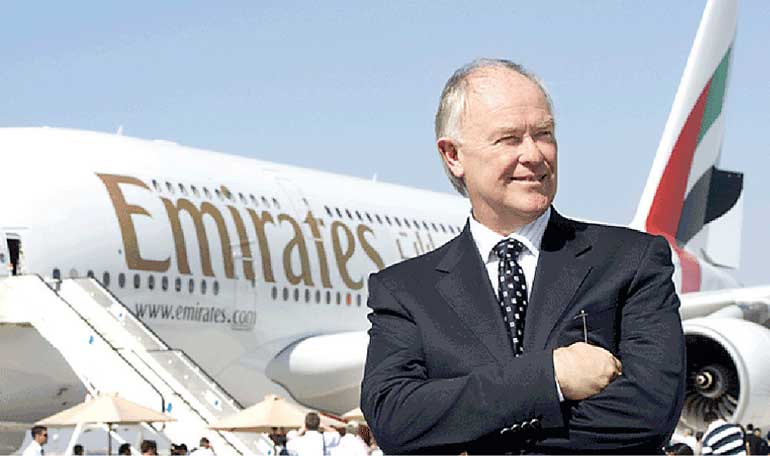Monday Feb 23, 2026
Monday Feb 23, 2026
Monday, 11 July 2016 00:00 - - {{hitsCtrl.values.hits}}

BRUSSELS (Reuters): The chief of Dubai-based airline Emirates expressed doubts last week that an EU-level aviation agreement with the United Arab Emirates would improve on the existing deals the Gulf country has with most EU countries.
In June European member states gave the executive European Commission a mandate to pursue air traffic agreements with the United Arab Emirates (UAE), Qatar, Turkey and countries in southeast Asia to try to support the European aviation sector.
Such agreements, now often done on a bilateral basis by individual governments, would set out where and how often foreign airlines could fly into the EU, and vice versa.
But the initiative has been eyed with suspicion by Gulf carriers such as Emirates, Etihad and Qatar Airways, who have faced accusations of receiving unfair state subsidies from European legacy airlines, notably Lufthansa and Air France KLM, as well as major US ones. The Gulf airlines have firmly rejected the allegations.
“It is in the view of Emirates that we have more in the current agreements than we anticipate the mandate giving us,” Emirates president Tim Clark told Reuters.
He added that he had not seen the mandate and therefore could be wrong, “but we have a very high bar, and I guess the government and the airlines would be interested to know how the mandate would improve that.”
An EU source has said that the flying rights in the mandates for Qatar and the UAE are more restrictive than those for the Association of Southeast Asian Nations (ASEAN).
Europe’s aviation industry has been bitten by the rapid expansion of carriers from the Gulf region as well as shifting traffic flows to Asia.
France and Germany have led the charge for EU-level agreements as a way to ensure fair competition on the European market, but some see that as thinly veiled protectionism.
“We get a parade of ministers asking us from various states within the EU to extend our operations to countries beyond their countries,” Clark said.
“So we’re a little bit perplexed as to why you would try to change this and introduce levels of complexity, but it is for the government of UAE to respond.”
Clark said he was worried that Brexit might hit demand following Britain’s historic vote to leave the 28-nation bloc, compounding heightened security fears since suicide bombing attacks on airports in Brussels and Istanbul.
“What you’re seeing is consumer confidence constantly being eroded. This predated Brexit but Brexit hasn’t helped,” he said.
“We have 120-150 billion dollars’ worth of aircraft coming down the lines...I’d like to think that I’m going to be able to take all those airplanes and get some stability in the market and get demand kick-started.”